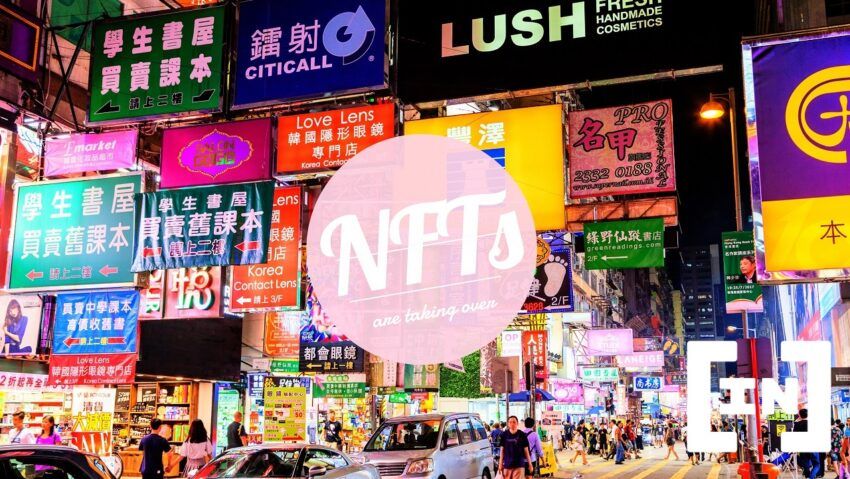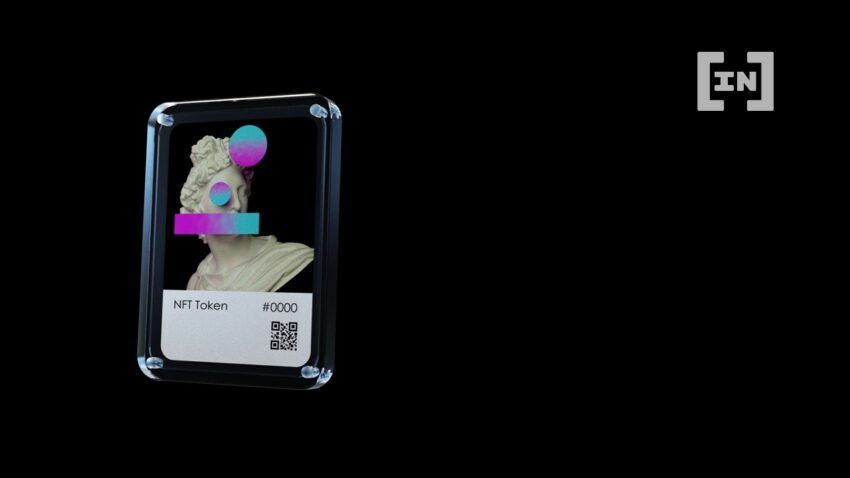NFTs still have compelling uses for brands, says Martin Noam Slutzky, the co-founder of InvestingNFT.io.
Non-fungible tokens (NFTs) have dominated the news in recent months as musicians, influencers, celebrities, and athletes began employing NFTs as means of fan engagement. Furthermore, they opened the doors to mass participation by anybody with an internet connection.
The boom continued to shine until 2022, bolstered by a healthy and bullish cryptocurrency environment. Now, the NFT landscape has changed.
NFTs: Will it still make sense for brands to launch their collections?
Brands are moving into the Metaverse, and are still using NFTs. Giants brands like Nike and Prada have adopted the use of them to add other dimensions to their business. For instance, Nike announced that it would be releasing an NFT-enabled version of its iconic Air Max sneaker. The move was seen as a way for Nike to stay ahead of the curve and tap into the NFT market.
Non-fungible tokens will most certainly merge with the metaverse’s virtual worlds since many of them will likely be functional there. Balenciaga, another luxury fashion company, has already been an early pioneer in this area. They provided gamers with a collection of NFT accessories for use on Fortnite.
NFTs in ticketing and events
Ticketers are utilizing non-fungible tokens to extend their product offerings and grow their client base. The use of NFT technology allows ticketers to sell tickets that cannot be resold or transferred, which helps to combat ticket fraud. Furthermore, NFTs allow ticketers to offer unique experiences that are not possible with traditional ticketing methods.
One example is the online music platform Blockparty. They used non-fungible tokens to sell tickets and offer exclusive experiences to fans. Blockparty was able to sell out its event in just a few minutes, thanks to the use of NFTs.
Another example is the Golden State Warriors who sold 327 NFTs of artwork of championship tickets for over $2 million. This allowed the Warriors to offer unique experiences to fans, such as early access to the arena and the ability to purchase autographed merchandise.
NFTs have also been used to sell tickets for physical events, such as concerts and festivals. Coachella was one of the first music festivals to use non-fungible tokens to sell tickets. This allowed Coachella to offer unique experiences to fans, such as the ability to purchase VIP packages and access exclusive content.
NFT art market places
NFTs have also been used to sell art. The first major NFT art sale was conducted by the digital artist Beeple, who sold an NFT of his artwork for $69 million. This event also helped emerging artists to get to the global stage. Now, artists can sell their art directly to fans, without the need for a middleman. It has also increased awareness for different social projects, support for children in war zones, and more.
Some of the top marketplaces for creators include Opensea, Rarible, and SuperRare. These marketplaces allow artists to sell their non-fungible tokens directly to fans.

How NFTs can relate to real estate
The use of NFTs has also been extended to the real estate industry. The first major real estate NFT sale was conducted by the firm Propy. They sold an NFT for a digital property in Decentraland for $267,000. Buyer can now purchase and own fractional ownership of property, without the need for a middleman.
Some of the top marketplaces for real estate include Decentraland, Blockimmo, and Ubitquity.
NFTs and their relationship with local brands
As the use of NFTs grows local brands such as restaurants and bars such as Kiltro Barcelona. Local brands can now build an active community and offer unique experiences to customers, such as the ability to purchase exclusive content or early access to products, or even voting rights about the future products or services of the company.
The first major food and beverage NFT sale was conducted by the restaurant chain Burger King, which sold an NFT for a digital Whopper for $120,000. The use of NFTs allows restaurants to offer unique experiences to customers, such as the ability to purchase exclusive content or early access to products.

In the end…
For some industries, like video games, fashion brands, and more, the NFT market will continue to grow. It can solve the core problems of those industries by communicating with the younger generations and building an active community. It will create a new market for those who are early adopters with a better understanding of this technology. For late comers, they might find it difficult to get into this new market. However, with better education and more user-friendly platforms, we believe anyone can be part of this new digital world.
About the author

Martin Noam Slutzky is a blockchain enthusiast and co-founder of InvestingNFT.io. InvestingNFT collaborates with brands, athletes and artists to empower their marketing strategies and potentiate their exposure through NFTs by designing exclusive promotions and events increasing the experience and bond with the community.
Got something to say about branding or anything else? Write to us or join the discussion in our Telegram channel. You can also catch us on Tik Tok, Facebook, or Twitter.
